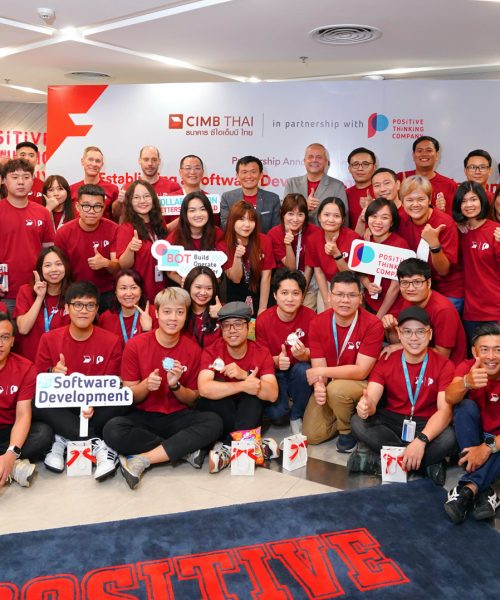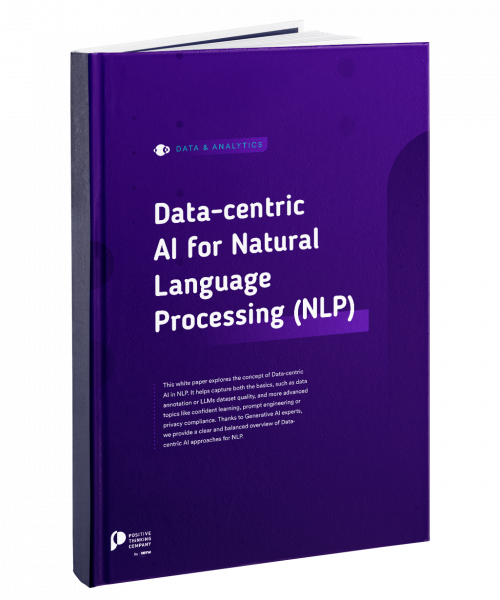The digital transformation wave and the rise of Big Data have created a new urgency for companies: how to make the best use of the ever-increasing data volume from various sources to create value? Halfway between advanced analytics and programming, the Data Scientist provides an answer to this issue by developing statistical models and Machine/Deep Learning algorithms.
Here comes the challenge: on the one hand, their skills are rare on the market, which makes them hard to recruit and to retain on the long term; on the other hand, they do not always have the understanding of the business-specific context required to bring unique and relevant value for the company.
Combining business expertise with the principles of Data Science
Meanwhile, the development of Business Intelligence tools shows that business lines can be provided with simplified data analytics solutions, including the capability to use predictive analytics. According to Gartner, the key lies in democratizing automation of processes. While not aiming at undermining or replacing Data Scientists expertise, it enables less specialized profiles to manipulate data in order to get convincing results. A new profile has emerged the Citizen Data Scientist. In 2016, Gartner theorized the Citizen Data Scientist concept and defined it as a business user capable of combining his or her expertise with the principles of Data Science, without a deep knowledge in mathematics or statistics.
Since then, the idea has made its way. The emergence of Citizen Data Science meets the growing needs of companies in terms of analytics. It also gives the business lines the independence they aspire to, by enabling the most autonomous employees to work directly on the data that interests them, without fearing their functional needs may have been misinterpreted. The business lines thus become more independent, while IT remains in charge of data and information system integrity.
It is time for Self-service Advanced Analytics
The process has already begun. The key challenge is to capitalize on this trend to maximize the company’s benefits. To do so, it is necessary to promote the emergence of a real Data-driven Culture within the different business lines.
First, releasing from the most repetitive tasks all those who show an interest for data analytics, so that they can explore their data through self-service solutions. Then, gradually enrich the analytics capabilities as these profiles develop their skills (especially in statistics) to increase the added value and maximize the positive impact of the approach.
There are many solutions already available to simplify data mining (Tableau, Power BI, Qliksense), develop advanced analytics capabilities and deploy statistical and Machine Learning models (Alteryx, Dataiku, DataRobot, Rapidminer).
An example of Citizen Data Scientists’ concrete achievement
In practice, Citizen Data Scientists can put their business expertise and technical skills at the service of a use case such as predicting the high number of passengers in an airport area.
In Dubai airport, for example, Lennart Prins, Head of Business Information, and his team have created a model that can anticipate the number of check-in counters to open based on the number of passengers on site, the terminal size, the flight arrival time, etc. The goal is to adapt the workload of staff according to passenger traffic and their need for assistance.
The prediction performed with the Alteryx platform is then compared with the airport’s motion sensors (IoT) to confirm the correspondence of the prediction with the actual situation on site. And guess what, predictions were extremely accurate!
Be careful, there is nothing magical about it
Just as buying a Ferrari will not provide you with a driving license, advanced analytics tools are not sufficient, as they stand, to reach a truly efficient Data Science approach.
Prior development of already existing analytics skills through specific and adapted trainings to the foundations of Data Science can improve the efficiency of the Citizen Data Scientist work. The principles are easy to grasp and to deploy for a profile already used to work with data, such as Data Analysts or BI/BA experts.
As a result of this initial training, it will then be possible to adopt a truly relevant data analytics approach. In addition, practicing will allow you to continuously improve your skills and become more efficient.
If you find yourself in this new role and its definition, it is because you are probably a future Citizen Data Scientist. You now need to take advantage of an initial training course to familiarize yourself with the principles of Data Science and the tools available on the market.
The Positive Thinking Company offers training courses on the fundamental principles of Data Science. Our approach consists precisely in mobilizing a Data Scientist who transfers a part of his or her skills to potential Citizen Data Scientists.










